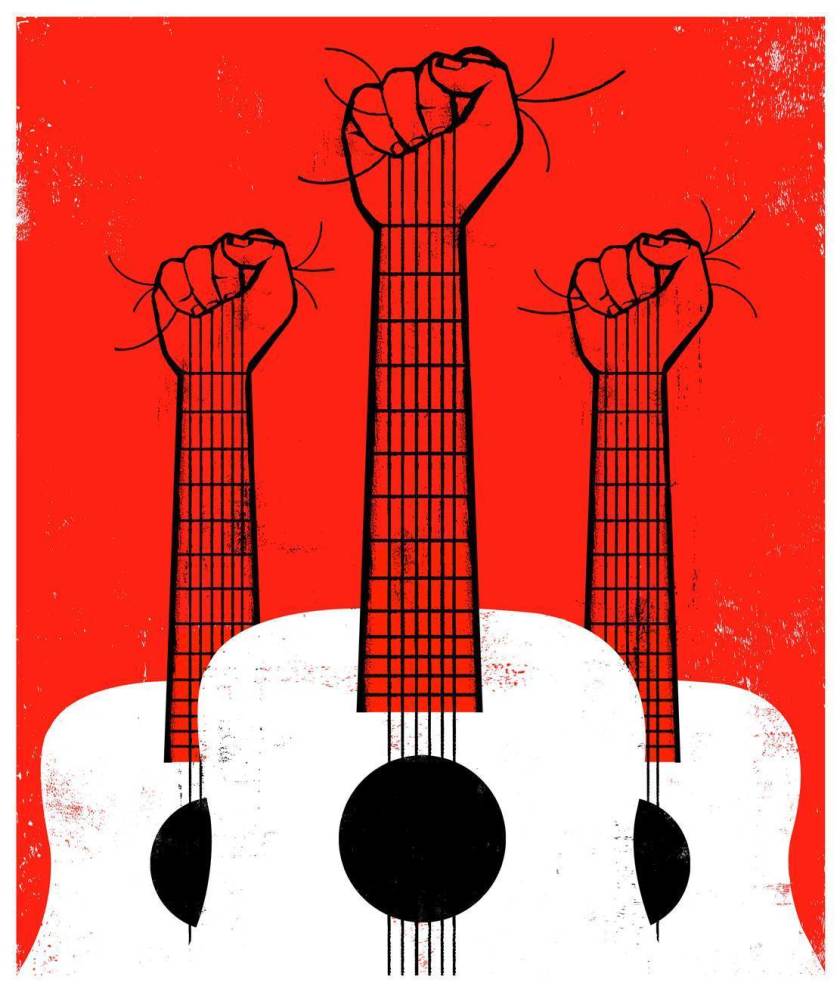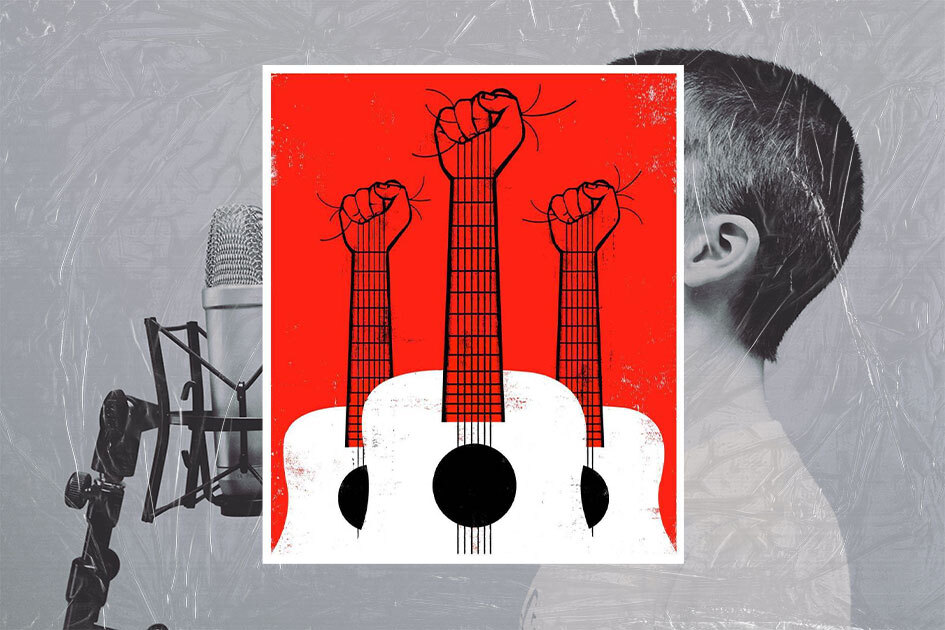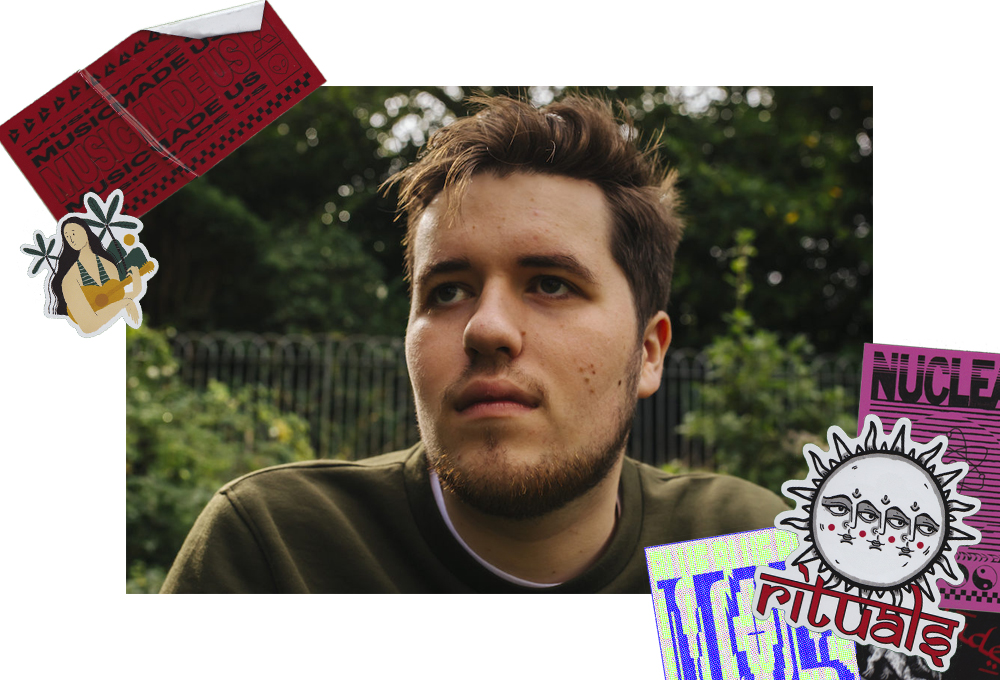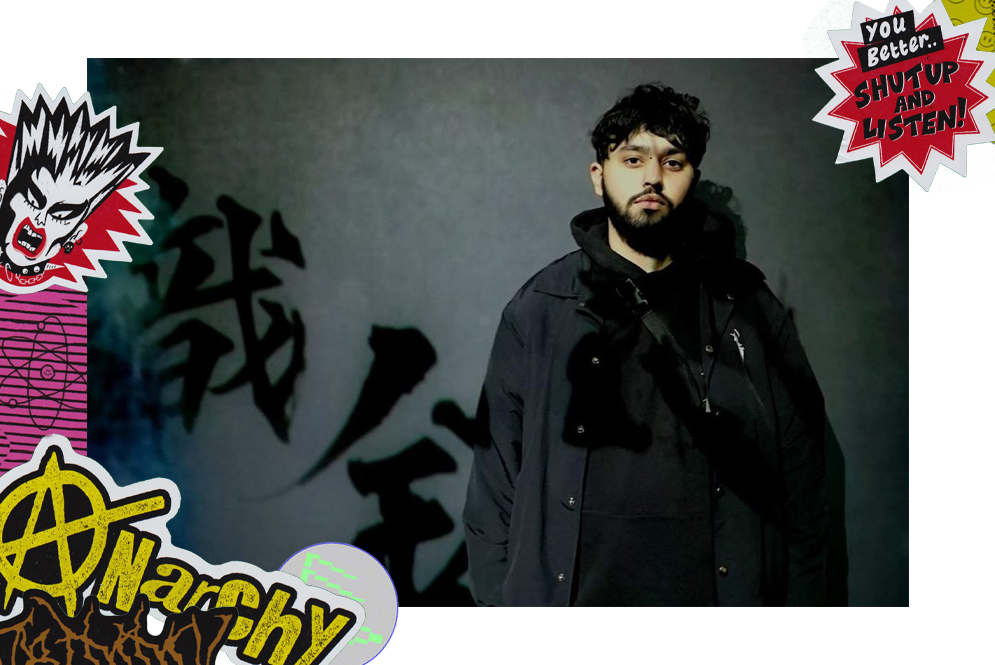As part of our Music Made Us campaign, creatives, music professionals, experts and journalists reflect on how music has been there for us through good times and tumultuous periods that inspire change. Throughout generations, music has sparked, supported and commented on movements, memories and moments in time.
Our contributors look at these events’ relationship with music – from the UK’s 80s acid house and rave scene to the 1992 LA riots and Covid-19 potentially leading to the third summer of love. They also look at music’s ability to heal our mental health and become a part of our personal stories.
Here, Daniel Tsourekas, a first-year Music Marketing, Media and Communication student at BIMM Institute Manchester, explores the connection between music and emotions – from Plato to the likes of J. Cole.
Music not only has the power to entertain and provide joy; it has started to return to its academic and spiritual roots.
Today, more university courses explore the psychology of music and the artist; more books emphasise music’s spirituality; and most importantly, more listeners are resonating with music on another level. But what is this ‘other level’, and how has humanity’s connection with music changed over time?
Today, music is being treated less like a form of media and more as a form of emotional expression through art. Boundaries are being broken, with genre fusions and experimental sounds becoming more abstract as time progresses. Trap Metal’s introduction proves that – with artists such as Ghostemane and Scarlxrd pushing the envelope for the new generation.
The Connection between Music and Emotion
The Cambridge Dictionary defines music as “a pattern of sounds”. However, according to Sean McCollum’s research in 2019, much more happens than just passive listening when we hear music. Music reaches parts of the brain that few other things can. Our brains use multiple cortexes to process the musical signals delivered by our nerves, decoding rhythm, pitches and tones, memory, performance, anticipation – and most importantly: emotion.
“Music has been a driving point for my evolution as a person and the way I interpret everything around me.”
Music’s meaning goes beyond just a dictionary definition: it can define how we feel. I, for one, regard music as a way of life. Throughout my life, music has been a driving point for my evolution as a person and the way I interpret everything around me. The sounds I surround myself with mature alongside me. If you cast aside the consumerist perspective, music adapts itself to every situation you live through.
Of course, everyone’s personal connection to music varies. If you asked every person on the planet about their connection to music, you’d get about 7.5 billion different answers. But, there is no doubt that to some, music is a spiritual and mental journey.
“I think music in itself is healing. It’s an explosive expression of humanity. It’s something we are all touched by. No matter what culture we’re from, everyone loves music.” – Billy Joel
I believe that emotionally and spiritually, music has immense meaning. It has become a universal language that creates an invisible bond for individuals worldwide, connecting people from different cultures and backgrounds. If you think about it, pretty much every memory or current state of emotion can be linked to a song, artist or genre of music.
Hans Christian Andersen noted this connection between music and emotion in only five words: “Where words fail, music speaks”. Kanye West is a prime example of an artist who expresses his constantly changing emotions through his discography. But artists from other genres also depict changes in their lives; the connection between music and emotion is not limited to one sound. Slipknot, Bring Me the Horizon, King Krule, and thousands more represent emotions within their genres. For musicians, their talent in creating compositions means they can use music as a platform to morph emotions and feelings, reaching and resonating with people around the world.
For many, music is about forming a personal connection with their craft, the people around them, and their own spirituality.
“Music is a moral law. It gives soul to the universe, wings to the mind, flight to the imagination, and charm and gaiety to life and to everything” – Plato
This spiritual and mental connection between music and humanity has been with us for centuries. The Ancient Greek philosopher Plato and his mentor Socrates were the first to make the importance of music known. While Plato believed that music is a moral law, Socrates thought that music’s purpose was to nurture a “good soul”. Many musicians have noted the importance of music for the soul, such as Louis Armstrong: “Music is life itself”, and Bono: “Music can change the world because it can change people.”
While music has often represented the times we live in, there is one crucial difference between the past and present: sound.
The Spiritual Evolution of Modern Music
With the introduction of technology, artists have warped new sounds to their liking. Now, people can create new samples and sounds from the comfort of their computers. And music consumption is growing more and more. A study by the IFPI claims that 54% of people identified as loving music or being passionate about music; more senior age groups are also interacting with streaming services for the first time to have music wherever they go; and diverse backgrounds, age groups and cultures are keeping up with modern technology so they can experience music in their everyday lives.
Music has developed from representing a community to representing the everyday lives and stories of individuals. As it has transcended from the masses to the personal, music has also influenced people’s styles, ideals and character. We can see this being pushed even further with artists creating clothing brands, incorporating their ‘sound’ into materials to reach consumers in different ways. Bring Me the Horizon’s Oli Sykes and Odd Future’s Tyler, the Creator have been active with their clothing companies DropDead and Golf, incorporating their music style into their products.

Music is something that the world consumes today more than ever.
According to UK Music’s Music by Numbers 2020 report, the UK music industry contributed 5.8 billion pounds to the UK economy in 2019, with 1.3 billion from the live sector and an estimated 1.7 billion from streaming and album sales. The report also notes that consumers and tourists spent 4.7 billion pounds on music – with 12.6 million people attending live events.
This cultural shift in music consumerism fuses with the aforementioned spiritual and mental journey. We can see this in the Black Lives Matter organisation’s recent movements, where musicians and albums that promoted equality and support were at the forefront of the protests. I believe that music helped bring people together from different backgrounds against racial stereotypes and equality issues. Songs such as Lil Baby’s “The Bigger Picture” and Run the Jewels’ latest album RTJ 4 further prove this point.
In some cases, musicians will make music as a piece of social and political commentary. Artists such as Rage Against the Machine, J. Cole and Kendrick Lamar regularly speak on important topics in their communities. One of my favourite projects surrounding these issues is Kendrick Lamar’s 2015 album To Pimp A Butterfly, which excellently depicts race, culture and discrimination.

Photo credit: Edel Rodriguez/For The Times
Being aware of other cultures through music helps people gain a better understanding of the world around them. As people and communities have focused more on their inner self – or a ‘good soul’ like Socrates first argued – they have used music as a form of self-discovery and expression.
“Music is being treated less like a form of media and more as a form of emotional expression through art.”
How Has Music’s Sound Evolved?
The discovery and teachings of more modern and lesser-known philosophies have added to this spiritual evolution of contemporary music. One example of this is the use of books such as The Kybalion: a text that revolves around Hermetic philosophy and explains the principles of mind, body and soul, mainly through the principle of mentalism (which appeared in the early 1900s but is still considered modern). This, alongside similar ideologies and theories, brings a new life and energy to many songwriting and producing styles.
These new styles range from J. Cole’s lyrics surrounding meditation in his 2018 album KOD: “One thing about your demons they bound to catch up one day, I’d rather see you stand up and face them than run away, I understand this message is not the coolest to say, But if you down to try it I know of a better way, Meditate”, to Mac Miller’s concept of the Divine Feminine on his 2016 album named after this concept. Each reaches a whole diverse spectrum of people.
“People’s needs for connectivity are slowly overtaking the blatant overconsumption of music that exists in our modern community.”
We know that music has transcended time and space for quite a while now. However, humanity’s constant evolution – alongside our ongoing thirst for knowledge and inner peace – has seen music reacquire spiritual and mental elements. People’s needs for connectivity are slowly overtaking the blatant overconsumption of music that exists in our modern community.
Heraclitus stated that “Everything is in flux”, which is an essential truth that music actively depicts – and demonstrates in the evolution of sound. Although nothing is stable forever, this recent re-emergence of spirituality, experimentalism and philosophical depictions in music could steer it into a new golden age of sound.
“Music won’t just be mainly considered as a form of entertainment or consumerism; it will be recognised as a sonic form of our life.”
Some artists such as Flume, the late SOPHIE, Mac Miller, Ghostemane and more emerging artists are already encompassing this evolution and are pioneering the sounds representing and expressing the lives of millions. I believe that no matter how abstract the sound is in this golden age, it will cause all kinds of emotion.
Music won’t just be mainly considered as a form of entertainment or consumerism; it will be recognised as a sonic form of our life, continually maturing with us and expressing our personality as humans.
Bibliography
- Your Brain on Music: The Sound System Between Your Ears (September 5th 2019). (Accessed: 5 February 2021).
- Industry Data (2019) IFPI. (Accessed: 5 February 2021).
- Music by Numbers 2020 (no date) UK Music. (Accessed: 5 February 2021).
Our Music Made Us campaign is told through the students, graduates, journalists, experts and passionate people who have been shaped by this creative outlet. Discover their stories here.



